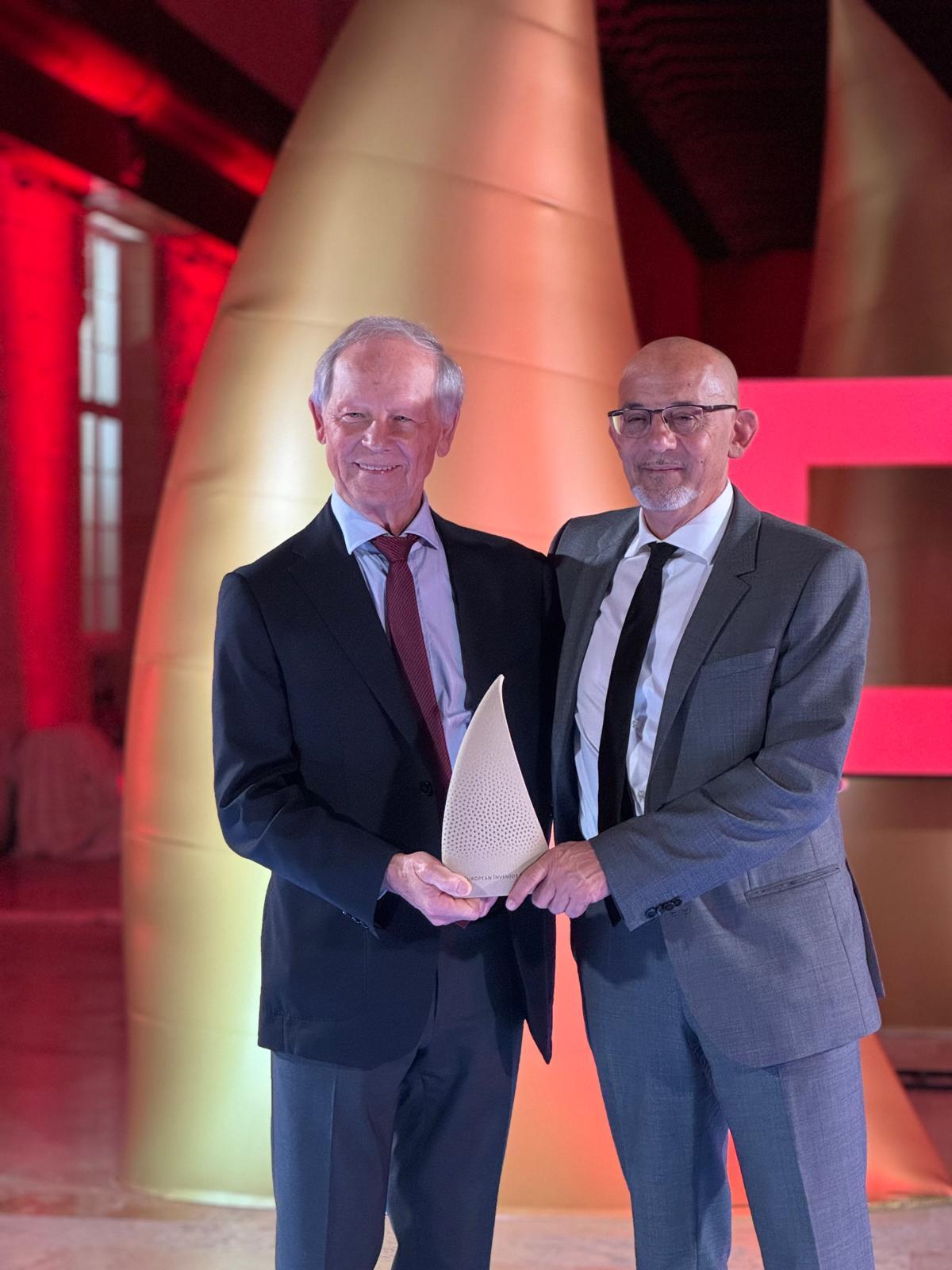Giga Press and injection 5s win the Industry category of the European Inventor Award.
Fiorenzo Dioni and Richard Oberle were honoured with the prestigious European Inventor Award.
The Idra team's invention on the Giga Press processes, recognised by the European Patent Office (EPO), enables the production of larger car parts with fewer components, thus minimising waste and energy consumption. Idra is committed to further improving the performance of the Giga Press for the benefit of the automotive industry.
IDRA WINNER OF EUROPEAN INVENTOR AWARD 2024
The pioneering work of the Idra team has led to the development of the Giga Press, the world's largest die-casting press, which, thanks to its 5S injection system, revolutionises the production of electric cars by producing larger parts with fewer components, thus minimising scrap and energy consumption.
Satisfied General Manager John Stokes, who was also in Malta for the final ceremony of this prestigious award: "I am very proud of this award, which comes after years of hard work. Our invention is revolutionising the automotive industry worldwide".
Fiorenzo Dioni: 'The Giga Press is revolutionising the automotive industry and will change the world of die casting forever. Our invention is above all a market-driven development, because the input came from the market'.
Richard Oberle added: 'We have invented something unique in the world. Idra research is the order of the day for us. Always. This innovation is particularly important in the era of electric cars. I have spent a lifetime designing hydraulic systems and was the first to create the 5S and after the Giga Press. With my vast experience in this field, at the beginning of my career I would never have imagined that we could achieve such an innovative milestone that would change the world of die casting".
The Giga Press was designed to simplify the underbody production process of large vehicles. Unlike conventional techniques that require the assembly of several individual castings, the Giga Press produces only two or three large parts, substantially reducing scrap and energy consumption.
